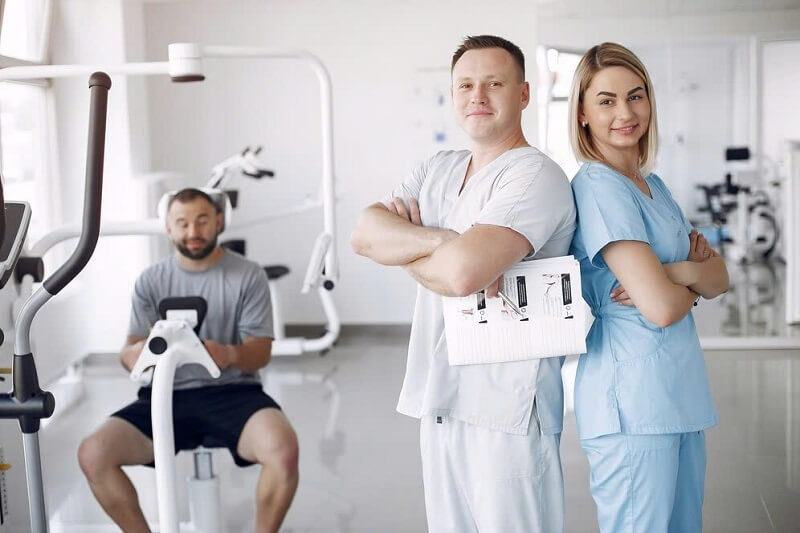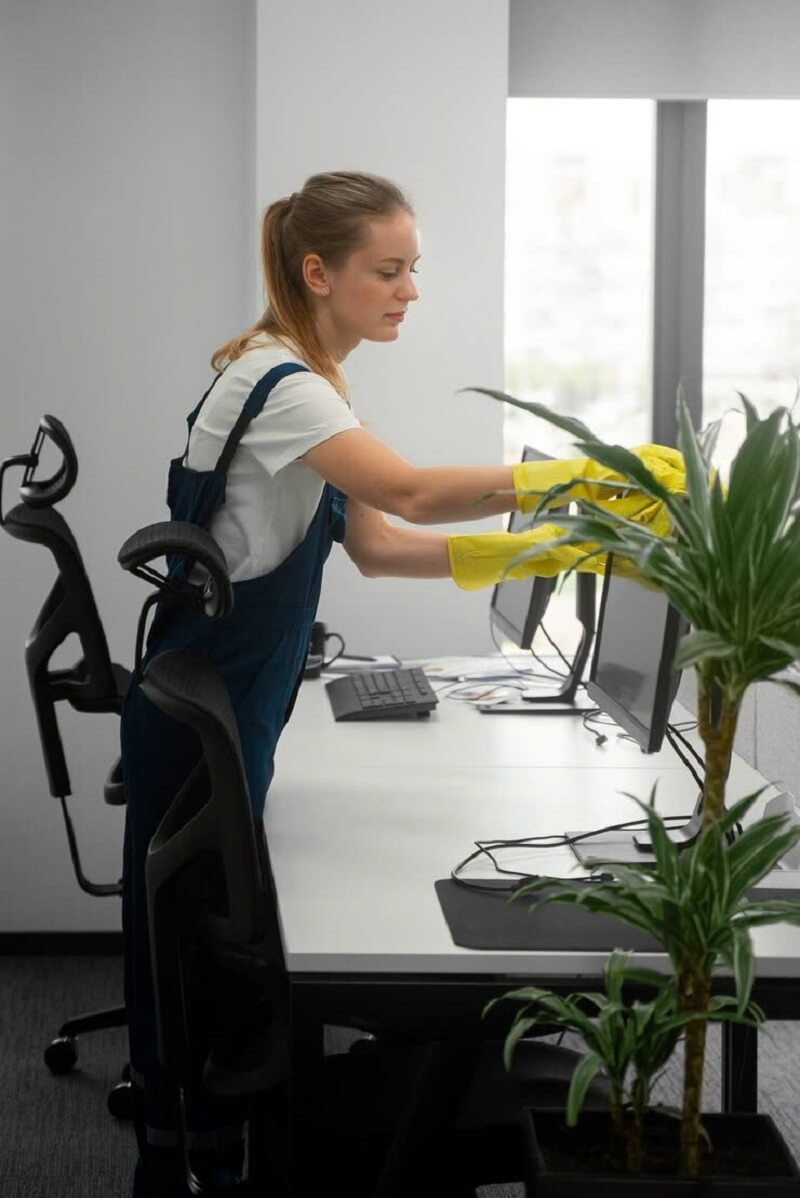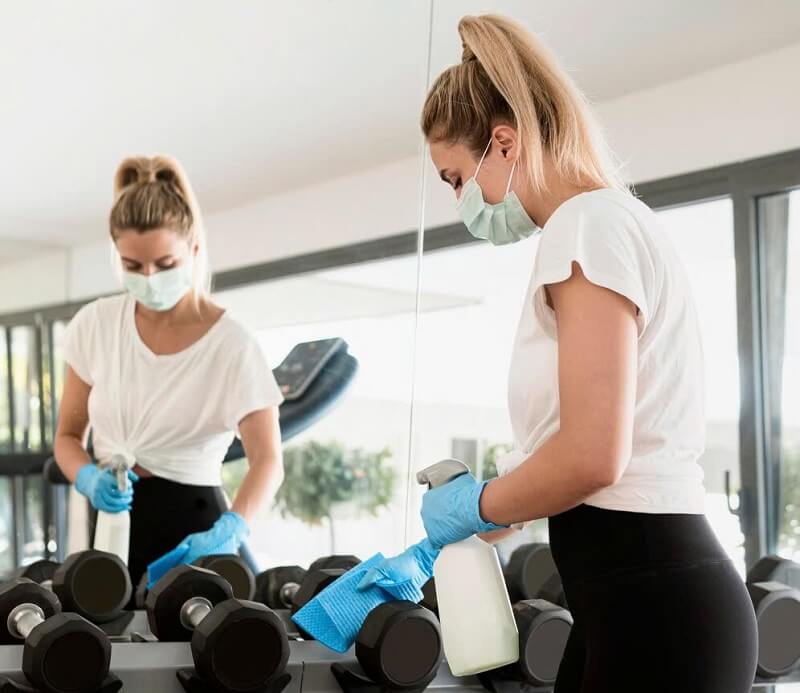Comprehensive Job Description Cleaner Guide
In today’s fast-paced world, maintaining cleanliness is more crucial than ever. Whether in a bustling office, a cozy home, or a large commercial space, cleaners play a vital role in ensuring hygiene and comfort. But what does a job description cleaner truly encompass? This article dives deep into the tasks, expectations, and qualities of a professional cleaner, providing practical insights for both employers and aspiring cleaners. Let’s explore the responsibilities of this essential role in detail.
1. Overview of the Cleaner Role
Cleaners are indispensable in maintaining cleanliness and hygiene across various environments. They are not just about sweeping floors or dusting surfaces; their responsibilities often extend to creating a safe and comfortable atmosphere for everyone who inhabits a space. For instance, in offices, a cleaner ensures that workstations are tidy, restrooms are sanitized, and common areas are presentable, fostering a productive work environment.
Similarly, in residential settings, cleaners contribute to the well-being of households by keeping spaces organized and germ-free. The importance of a well-defined job description cleaner lies in setting clear expectations for both the employer and the cleaner, enabling efficient and effective performance.

In commercial spaces such as malls or hospitals, the role of a cleaner becomes even more critical. Cleaners in these environments often handle specialized tasks, such as waste disposal, disinfection, and maintenance of high-traffic areas. Employers looking for skilled cleaners often prioritize individuals who are detail-oriented, punctual, and equipped with the necessary tools to handle the job efficiently. This is where a comprehensive job description becomes a key tool for recruitment, highlighting the specific duties and required qualifications.
1.1. Responsibilities of a Cleaner
The primary duties of a cleaner revolve around maintaining the cleanliness and order of a given space. However, the specifics can vary depending on the setting. In an office, for example, tasks might include vacuuming carpets, emptying trash bins, and cleaning windows. Meanwhile, in a residential environment, cleaners often take on additional responsibilities such as organizing items or washing dishes. For supervisors overseeing a team of cleaners, it is essential to provide clear guidelines and regular feedback, ensuring that all tasks are completed to a high standard.
Understanding these responsibilities not only helps employers set realistic expectations but also allows potential cleaners to assess whether they are suited for the job. Highlighting the key tasks in a well-written job description cleaner enables both parties to align their goals, paving the way for successful collaboration.
1.2. Key Skills Required for a Cleaner
To excel in this role, cleaners need more than just physical ability; they require a specific set of skills that ensure their tasks are performed effectively and efficiently. First and foremost, attention to detail is crucial. A successful cleaner notices even the smallest specks of dirt or disarray, ensuring a spotless and organized environment. Time management is another vital skill. Many cleaning tasks come with tight schedules, especially in office or commercial settings where downtime is limited. Being able to prioritize and complete tasks promptly is key to meeting employer expectations.
For those aspiring to supervisory roles, understanding the job description team leader is essential. Team leaders in the cleaning industry not only perform cleaning tasks but also manage teams, allocate resources, and ensure that all responsibilities are completed efficiently. Employers often seek candidates with strong communication and organizational skills to fulfill these roles effectively.
Communication skills also play a role in this profession. Cleaners often need to interact with supervisors, clients, or team members to clarify instructions or report issues. For instance, a cleaner working in an office may need to inform their manager about a malfunctioning appliance or a supply shortage. Additionally, basic knowledge of cleaning products and equipment is essential. A cleaner must know which products are suitable for different surfaces and how to operate tools like vacuum cleaners, floor polishers, or steam cleaners safely. Employers often include these specific skills in a detailed job description cleaner, ensuring they attract candidates who meet their requirements.
2. Exploring Specialized Cleaning Roles
While general cleaning is vital, certain environments demand specialized skills and expertise. Two prominent roles in this category are the cleaner supervisor and the office cleaner. These roles require additional training and responsibility, reflecting the unique needs of their respective workplaces.

2.1 Job Description Cleaner Supervisor
The cleaner supervisor oversees a team of cleaners, ensuring that all tasks are completed to a high standard and on time. Their responsibilities extend beyond basic cleaning tasks; they include assigning duties, monitoring performance, and addressing any issues that arise during operations. For instance, in a hospital setting, a supervisor might ensure that all areas are sanitized according to strict health regulations, safeguarding the well-being of patients and staff.
A detailed job description cleaner supervisor often highlights leadership skills, the ability to manage schedules, and a solid understanding of cleaning protocols. Supervisors must also act as mentors, providing guidance and training to their team members. Employers frequently prioritize candidates with prior experience in cleaning roles and a proven track record of reliability. For aspiring professionals, transitioning into a supervisory role represents an excellent opportunity for career growth within the cleaning industry.
2.2. Job Description Cleaner Office
Office cleaners focus on maintaining cleanliness in work environments. Their duties often include vacuuming carpets, dusting workstations, sanitizing restrooms, and ensuring communal areas like kitchens and meeting rooms are pristine. A key part of their job is creating a welcoming atmosphere for employees and visitors, which contributes to overall productivity and morale.
In many cases, the office cleaner also takes on additional responsibilities, such as replenishing supplies like paper towels or hand soap. A comprehensive job description cleaner office should outline these specific tasks, along with any unique requirements of the workplace. For example, some offices may require cleaners to work outside regular business hours to minimize disruptions. By clearly defining these expectations, employers can attract candidates who are not only qualified but also aligned with their operational needs.
3. Importance of a Well-Defined Job Description
A well-structured job description cleaner is not just a tool for recruitment; it is a vital document that sets clear expectations and facilitates smoother operations. For employers, it helps define the exact roles and responsibilities required of cleaners, ensuring that candidates are adequately informed before they apply. For instance, specifying tasks like "operating floor-cleaning machinery" or "ensuring compliance with health and safety regulations" can attract candidates with the necessary expertise.
On the other hand, for cleaners, a clear job description offers guidance and clarity on their day-to-day duties. This can reduce misunderstandings and foster a more productive working relationship. For example, a cleaner in an office setting might misinterpret their duties if the job description does not explicitly state whether they are responsible for restocking supplies in restrooms. A comprehensive description also highlights the value of their work, boosting morale and job satisfaction.

3.1. Benefits for Employers
Employers benefit significantly from detailed job descriptions in various ways. First, it streamlines the hiring process by filtering out under qualified candidates. When a job posting clearly states requirements such as "previous experience in cleaning large facilities" or "ability to work flexible hours," it saves time for both the recruiter and the applicant. Additionally, job descriptions can serve as a reference point for performance evaluations. Employers can use them to assess whether employees are meeting the expected standards and identify areas for improvement.
3.2. Benefits for Employees
For employees, a well-crafted job description is a roadmap to success. It allows cleaners to understand the scope of their responsibilities and the skills they need to develop for career advancement. For example, an entry-level cleaner might discover that gaining certification in handling specialized cleaning equipment can open doors to supervisory roles. Furthermore, job descriptions that explicitly mention fair wages, health benefits, or growth opportunities can enhance job satisfaction and loyalty among workers.
4. Essential Tools and Equipment for Cleaners
Effective cleaning requires the right tools and equipment, which vary depending on the environment and specific tasks outlined in the job description cleaner. For general cleaning tasks, basic tools like mops, brooms, and vacuum cleaners are staples. However, specialized roles may require advanced equipment, such as steam cleaners, floor polishers, or disinfection foggers. Understanding how to operate these tools safely and efficiently is a critical skill for professional cleaners.
In environments like hotels or resorts, the expectations are often similar to those in a detailed job description housekeeping, where cleaners are tasked with ensuring that guest rooms and common areas are immaculate and welcoming. This overlap highlights the versatility and importance of cleaning roles across various industries.

4.1. Commonly Used Tools
Cleaners in most settings rely on a standard set of tools to complete their tasks. For instance, microfiber cloths and all-purpose cleaners are used for wiping down surfaces, while vacuum cleaners handle carpets and upholstery. For floors, mops and buckets with wringers are essential, particularly in large areas like commercial spaces or schools. Each of these tools serves a specific purpose and contributes to maintaining high cleanliness standards.
4.2. Advanced Equipment for Specialized Roles
In more demanding environments, such as hospitals or industrial facilities, cleaners may need to use advanced equipment. For example, floor scrubbers are indispensable for cleaning expansive areas quickly and effectively, while steam cleaners are excellent for sanitizing surfaces without the use of harsh chemicals. Proper training on these tools ensures that cleaners can perform their duties safely and efficiently, as specified in their job descriptions.
5. Health and Safety in Cleaning Roles
The cleaning profession demands strict adherence to health and safety protocols, particularly in environments like hospitals, schools, and food preparation facilities. The importance of these measures is often highlighted in a comprehensive job description cleaner, ensuring that both employers and employees are aware of the necessary precautions.
5.1. Common Health Risks for Cleaners
Cleaners frequently face risks such as exposure to hazardous chemicals, physical strain, and potential injury from equipment misuse. For instance, prolonged use of harsh cleaning agents without proper protective gear can lead to respiratory problems or skin irritation. Additionally, repetitive tasks like mopping or lifting heavy objects may result in musculoskeletal disorders over time.

Employers must provide safety training and necessary personal protective equipment (PPE), such as gloves, masks, and goggles. For cleaners, being proactive in following safety guidelines can significantly reduce these risks. For example, wearing non-slip shoes can prevent falls in wet areas, while proper lifting techniques can avoid back injuries. Including these precautions in the job description cleaner ensures that safety is a priority for all parties involved.
5.2. Best Practices for Ensuring Safety
To maintain a safe working environment, cleaners should follow these best practices:
Always read the labels and usage instructions for cleaning products.
Use ergonomic tools to minimize physical strain.
Regularly inspect equipment for damages or faults.
Ensure proper ventilation when working with strong chemicals.
Report any unsafe conditions or incidents to supervisors promptly.
Employers should reinforce these practices through regular safety drills and accessible resources. A well-defined safety protocol in the job description cleaner supervisor ensures that team leaders are equipped to enforce these measures effectively.
6. Career Advancement Opportunities in Cleaning
The cleaning industry offers numerous paths for career growth, from entry-level positions to supervisory and managerial roles. Many cleaners begin their careers with basic tasks, gradually acquiring skills and experience that enable them to take on more responsibilities. A clear job description cleaner can serve as a roadmap for employees aspiring to advance in this field.
6.1. Transitioning to Supervisor Roles
One of the most common progression paths is moving into a supervisory position. Cleaner supervisors oversee teams, coordinate schedules, and ensure compliance with cleanliness standards. To qualify for this role, candidates often need prior experience, strong leadership skills, and familiarity with advanced cleaning techniques. Employers seeking supervisors often emphasize these requirements in the job description cleaner supervisor, helping aspiring professionals identify their next steps.
6.2. Expanding Into Specialized Fields
Beyond supervisory roles, cleaners can explore opportunities in specialized fields, such as industrial cleaning, biohazard cleanup, or eco-friendly cleaning services. These roles often require additional certifications or training, which can significantly boost earning potential. For example, a cleaner certified in handling hazardous materials may find lucrative opportunities in medical or laboratory settings. Highlighting these possibilities in a detailed job description cleaner office or similar roles can inspire employees to invest in their professional development.
Conclusion
The cleaning profession is an integral part of maintaining hygiene, safety, and comfort across various environments. Whether working as an office cleaner, a cleaner supervisor, or in a specialized role, each individual contributes significantly to creating a better living and working space for others. A well-crafted job description cleaner not only sets clear expectations but also serves as a foundation for growth and success in the industry. Employers who provide detailed job descriptions help foster transparency and efficiency, while employees who embrace their roles with dedication and professionalism find opportunities for advancement. By prioritizing clear communication, practical training, and a shared commitment to excellence, the cleaning industry continues to thrive as a cornerstone of modern society.
- Essential Job Description Supervisor Guide for Success
- Essential Job Description Sales Guide for Success
- Job Description Restaurant Manager – Roles & Skills
- Understanding the job description project coordinator role
- Job Description HR Assistant—Roles and Responsibilities
- Essential Guide to Job Description COO
- Comprehensive Job Description Admin Assistant Insights
- A Comprehensive and In-Depth Job Description for HR Generalist
- Comprehensive Guide: Job Description Executive Chef
- Top 5 Best Job Search Sites for Easy Job Applications
- QA Job Description: Key Skills and Roles in 2025
- The Complete Clerk Job Description Guide
- What Is Your Greatest Weakness? Mastering the Answer
- Master the Phone Interview for Career Success
- Crafting the Perfect CV Personal Statement
- What is a Job Description Warehouse Worker?
- Detailed job description teller bank for career growth
- Comprehensive Job Description Store Manager Guide
- Comprehensive Guide to Job Description Personal Assistant
- Comprehensive Guide to Job Description Nursing Assistant
- Comprehensive Job Description Graphic Designer Guide
- Comprehensive Job Description Chief of Staff Guide
- Comprehensive Job Description Cleaner Guide
- Comprehensive Job Description Assistant Manager
- Comprehensive Guide to Job Description Account Executive
- Comprehensive Guide to Secretary Job Description
- Comprehensive Job Description of Teaching Assistant
- Comprehensive Job Description for a Social Media Manager
- Mastering STAR Interview Techniques: The Ultimate Guide
- “I Hate My Job” – What You Should Do Next
- What Is a Job Description Team Leader?
- A Complete Guide to Job Description Sales Assistant
- Comprehensive Job Description for Security Guards
- Detailed Job Description for HR Manager
- The Ultimate Guide to Job Description Medical Assistant
- Job Description Housekeeping: Key Roles & Responsibilities
- Job Description Merchandiser: Key Roles & Skills
- Job Description Product Manager: Roles and Responsibilities
- Job Description Account Manager: Roles and Responsibilities
- Job Description Marketing Manager: Roles & Skills
- Job Description HR: The Essential Guide for HR Professionals
- Best Jobs for Introverts: Top Careers for Quiet Thinkers
- What is Your Greatest Strength? How to Answer Effectively
- Job Description Data Entry Guide
- Detailed Job Description Sales Manager Guide
- The Importance of Work Experience on a Resume
- Comprehensive Job Description Sales Representative Insights
- Comprehensive Job Description of Project Manager
- Job Description Executive Assistant: Key Responsibilities
- Job Description for Sales Executive: Key Roles and Skills
- Job Description Customer Service Roles
- Job Description Business Analyst: Roles and Skills
- Comprehensive Job Description for a Receptionist
- Mastering the Sales Associate Job Description
- Understanding Accountant Job Description in Detail
- Hard Skills vs Soft Skills: Key Differences and Examples
- Why Do You Want to Work Here? Best Answer and Examples
- How to Decline a Job Offer Politely and Gracefully
- Comprehensive Job Description of Waitress
- Job Description Cashier: Key Responsibilities and Skills
- Where Do You See Yourself in 5 Years?
- Mastering Problem Solving Skills for Career Success
- Effective Job Description Sample Guide
- Behavioral Interview Questions Guide
- Comprehensive Job Description for an Administrative Assistant
- Essential Job Titles for Career Success
- Master Leadership Skills for Effective Management
- How to Write a Perfect Motivational Letter
- CV vs Resume: Understanding the Key Differences
- Top Reasons for Leaving a Job Today
- What Is a Resignation Letter? Key Details You Must Know
- How to Write a Perfect Job Application
